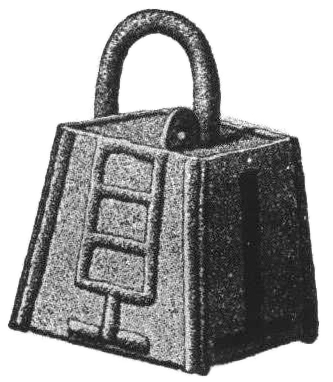why DRM and our copyright system don't play nice together
 Disclaimer
DisclaimerKeep in mind that IANAL, and I'm still learning the limits of some of the things I'm talking about, so my legal claims may not be 100% accurate, though I stand behind the moral and legal intuition behind them. Also keep in mind that I'm tired, and will have no time in the near future to flesh this out to the length it deserves, so it may appear skimpy- that is not my intent, just my reality ATM. I look forward to comments on the post that might help improve, refine, or if need be correct the arguments.
With all that said, here is why I think DRM breaks our current copyright regime and as such is a problem.
The Nutshell
There are lots of facets- completely ignoring the hypothetical right to 'share' that many anti-DRM arguments depend on- that make up the constellation of rights and restrictions that we group together as 'copyright'. I believe that DRM is fundamentally incompatible with several of these rights; extending some that should not be extended, and reducing others that should not be reduced.
The Rights of A Buyer of a Copyrighted Good
When you buy things, you have certain rights as a buyer. Most relevantly, since 1908 in the US, buyers of copyrighted goods have had a right to resell the good, a statutory right which has become known as the First Sale Doctrine. The basic idea comports with our intuitions about something we've bought- once you've bought something, you own it (like you own, say, your car), and can do with it basically as you please.
All current DRM (that I'm aware of) breaks this basic statutory right, as it is tied to a specific piece of hardware and does not allow the user to transfer the rights to different pieces of hardware. One could conceivably write DRM that allows resale, but it seems unlikely that this would occur unless it is statutorily mandated, since the publishing industries have been opposed to the first sale doctrine since Day One, and they dictate the design of most modern DRM.
[I personally believe that the first-sale doctrine also implies the right of users to use as they see fit before the sale- for example, moving it from one computer to another. This is a use model that is conceptually very, very difficult to fit into a DRM model without requiring people to register every computer/media player they own with a central registrar. But I really don't know anything about the rights of users to use goods once they've bought them, so I won't elaborate on this point much. Talk to me again about this one in a year :)]
The Rights of a Copyright Holder
In the US, copyrights derive from the Constitution, particularly the 'promotion of science' clause in Article 1. Specifically, the Constitution grants Congress the ability to create copyrights and patents 'for limited times'. Conceptually, the Founding Fathers understood copyrights not as 'intellectual property' but as 'limited monopolies'- that is, as monopolies granted by the state. While modern statutes haven't really respected that notion, the basic intuition is sound- the state grants creators specific rights, and rights which are not granted to creators by the state should be reserved to the people in exchange for bearing the costs of a monopoly. Creators do not, and have never had, unlimited rights to do as they choose with their creations- which is something assumed by everyone who argues for 'it is mine, so why can't I put DRM on it?'
So, we limit the rights of copyright holders, and have since the day copyright was written into the Constitution. The first limitation, and most obvious (given the Constitution's language) is on the length of copyrights. A DRM system that respects this right isn't inconceivable- it would merely require that the player software phone home to a 'trusted' clock. But I'm pretty sure no current system does this, and depending on the existence of a remote server to get access to goods one owns when the copyright on the good expires does not seem like a wonderfully reliable mechanism for what is supposed to be a fundamental right in our system.
Much more problematic is the idea of fair use. Fair use, in a nutshell, is the idea that certain usages (educational uses, for example) cannot be prohibited by a copyright holder. There is no 'bright line' in fair use law- every case is decided on its own merits, which vary from situation to situation based on a number of tests. That makes deciding whether or not something is fair use very hard for judges. It also means that if you can make DRM which allows fair use, congratulations- you've written an AI, and you're going to make a lot of money. In short, there is no way to write DRM which respects fair use- any copyright holder who uses effective DRM is saying 'screw you' to the limitations on copyright which our system has developed over the past 200 years, and replacing our legal system with technological force.
The canonical example of this last issue, in my mind, is the film teacher who wants to teach her students by showing clips from important films. Copyright law in this country makes it clear that the copyright holder cannot prevent the film teacher from editing the clips to use in her class as appropriate.
Summary
You don't have to like file-sharing or hate Big Music to be against DRM. You just have to like the basic system of copyright law which we've evolved over the past 200 years- a system with fairly minimal buyer's rights, and with fairly minimal restrictions on state-granted monopolies, and which even then is trampled on to various degrees by all existing and hypothetical DRM systems.
Future Avenues for Exploration
Once you start thinking about 'What rights do we currently have? Would DRM take them away?' there are a number of other issues that can be explored, which I might do in the future, but which I won't right now. Among them:
- Opt-in DRM: In the US, the presumption is that anyone who breaks DRM is guilty of a violation. Perhaps the legal regime should be shifted, making it illegal to apply DRM which creates new defacto rights. This would allow DRM to be used in cases like trade secrets, where there is no 'limited time' clause or fair use, while preventing its use in situations like copyright, at least until someone invents that darn AI.
- Market forces: in the past, we've depended on the legal system to protect our rights. Should we depend on market forces in the future, as argued by some of those who support DRM? If we do depend on market forces to protect our rights as consumers, how does DRM impact competition (amongst DRM providers, tool providers, content providers, etc.)?
- Other forms of IP: not all forms of IP have the same sets of rights and limitations. Would it be possible to envision DRM that is compatible with the legal regime for non-copyright IP (think: trade secrets), or DRM for copyright as envisioned in other nations?
- Personal Use IP: we use copyright now in some circumstances where the item copyrighted isn't beneficial to society in the way the founders envisioned. For example, some people copyright their pictures in part to help prevent unauthorized uses. Is it time to create a separate IP right whose motivation is personal privacy, akin more to trade secrets than copyright? If we did, would use of DRM be appropriate there?
[Image: a Viking padlock, via Wikipedia.]









6 Comments:
Note that there's nothing wrong with encryption based technical protection measures that may be used to form the basis of most DRM mechanisms.
The only rights infringement that comes into play is Copyright and DMCA/EUCD. The latter basically says you can't circumvent a TPM (no matter how fragile) in order to infringe copyright.
Without DMCA/EUCD, DRM is fine and tantamount to a sticker that says "Please do not remove this sticker".
So when digital libertarians rail against DRM, this is shorthand for 'Legally enforced DRM'.
Without DMCA, any DRM 'protected' works are simply inconveniently packaged works.
Without DMCA, any DRM 'protected' works are simply inconveniently packaged works.
That presumes that all DRM is fallible DRM, or more specifically, that all DRM is failed DRM. The thrust of my post is that as a consumer I have specific rights (like fair use); for DVDs before DeCSS was invented, there was no fair use, regardless of DMCA. So I would tend to disagree that it is 'merely' inconvenient, since there exist a number of DRM schemes that are uncracked, and I would guess that in the near future we'll see combos of DRM/TCM are uncracked for very extended periods.
Fantastic overview. You're right, the DMCA is completely ridiculous, and it vastly extends past the reaches of its constitiutional roots, allowing for protection of things that aren't copyrightable (as long as they're combined with at least some copyrightable content.
Check out Dan Burk's article Anticircumvention Misuse, 50 UCLALR 1095. It discusses how the proscription of circumventing DRM is being used not merely to protect copyrighted materials, but to prevent competition in markets that weren't even contemplated by the DMCA: Garage Door Openers and Toner Cartridges, for example.
> DRM to be used in cases like trade secrets
I'm interested how this is often left out from the discussion. In the crudest sense chmod and chown is a form of DRM but more often these kinds of user controls are lumped in with encryption and not thought of DRM per se.
In the crudest sense chmod and chown is a form of DRM but more often these kinds of user controls are lumped in with encryption and not thought of DRM per se
Not really, since chmod/chown/file encryption don't attempt to control your use of the content, just your access to it. Once you have access, you can do anything you'd like with the content, which isn't usually true with DRM.
From 17 USC 1201: (1)(A)No person shall circumvent a technological measure that effectively controls access to a work protected under this title.
Yes, chown/chmod only control access (via encryption), but that's exactly what they're talking about, as well. For a practical example, take Half-Life 2. Yes, it has copyright protection, but it also has access protection by encryption. You can't decrypt the files until you contact their server and verify your identity and your license.
The DMCA covers access just as much as it covers copying, because it extends copyright law to include such access schemes. The technical protection preventing you from accessing things has the added bonus of preventing you from copying them.
Post a Comment
<< Home